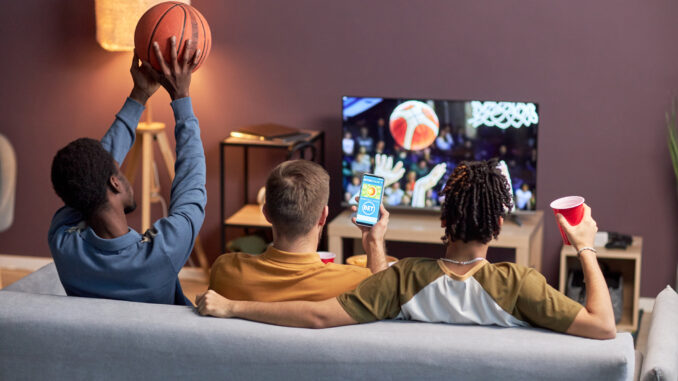
Previously Published in The Messenger
By Raheem Soto
There’s an old saying in economics: incentives matter. It explains everything from Wall Street bubbles to high school report cards. It also explains why a professional athlete or coach, already earning millions, might still risk everything for a few more.
The NBA’s recent gambling scandal—ensnaring names like Terry Rozier and Chauncey Billups—isn’t a story about sports. It’s a story about what happens when a culture built on entertainment starts mistaking virtue for spectacle and accountability for PR damage control. When the league partnered with betting companies, it told the world that gambling could coexist with integrity, that profit and purity could share the same locker room. Now the receipts are in, and the myth has collapsed.
The Slippery Court
In recent weeks, federal indictments have alleged that Rozier, Billups, and several associates were involved in illegal betting schemes, insider tips, and rigged poker operations. The charges range from gambling fraud to organized crime ties—phrases more suited to a mob documentary than an NBA press release.
The details are still emerging, but the damage is already done. The NBA, which once suspended a referee for fixing games, now faces a crisis far deeper than one rogue official. It’s confronting an entire generation of players raised in an era where gambling isn’t just tolerated—it’s sponsored.
The House Always Wins
Once upon a time, the idea that an athlete would bet on a game—let alone one he could influence—was unthinkable. The risk wasn’t worth the reward, and the shame would follow a man for life.
But moral guardrails don’t vanish overnight; they erode when people are paid to look the other way.
When the NBA signed multimillion-dollar partnerships with FanDuel, DraftKings, and BetMGM, the message was clear: gambling isn’t a threat— it’s a growth market.
That’s like saying cigarettes are fine if you put a warning label on the box. The product didn’t change; only the advertising did.
The problem is that human nature doesn’t respond to disclaimers—it responds to temptation. Players see lines and odds flash across their social feeds, announcers drop over-unders between highlights, and “responsible gaming” hashtags run beneath dunks. The line between fan and participant blurs until someone decides to make it profitable.
The League’s Real Mistake
Commissioner Adam Silver has promised an “internal review” and “policy tightening.” That’s the bureaucratic equivalent of a shrug. What the league won’t admit is that it created the very environment that made this scandal inevitable.
By monetizing access to the game—down to every rebound, turnover, and sprained ankle—the NBA turned private player information into a public commodity. Betting companies made billions on data that, just a decade ago, was sacred to team strategists.
Now, when a player tweaks his hamstring, it’s not just a coaching decision—it’s market information. And where there’s market information, there’s insider trading.
The league will say the problem is “a few bad actors.” But that’s like blaming one termite for a rotting foundation. The structure was compromised the moment the NBA opened its doors to an industry whose profits depend on the perception of randomness.
When Entertainment Replaces Ethics
There’s a deeper cultural shift here. In the modern sports economy, players are brands, teams are content studios, and fans are consumers of personality as much as performance.
When virtue becomes optional and attention is currency, gambling fits right in. Why settle for playing the game when you can play the game—the market that surrounds it?
This isn’t about morality in the pulpit sense; it’s about consequences. Gambling doesn’t just risk corrupting a scoreboard—it corrodes the public’s belief that the scoreboard means anything.
Once fans start wondering if a missed shot or an early substitution was intentional, the damage is irreversible. A sport can recover from bad calls. It can’t recover from distrust.
The Economics of Decay
Incentives are the invisible hand guiding behavior. If you reward people for winning, they’ll compete. If you reward them for gaming the system, they’ll manipulate it.
The NBA’s partnership model did both. It told fans that gambling revenue would fund innovation and fan engagement, but it told insiders— quietly—that there was money in gray areas.
No one should be surprised when those gray areas turn black.
Politicians like Senator Ted Cruz are now demanding oversight, claiming that “games must be trustworthy.” That’s rich coming from a government that legalized sports betting to pad its own tax revenues. This isn’t a failure of regulation; it’s the predictable result of regulation designed around revenue, not restraint.
Rebuilding the Game’s Soul
The NBA doesn’t need another task force. It needs to remember what it used to stand for.
It can start by eliminating all forms of betting tied to player performance—no more “prop bets” on points or assists that turn human beings into financial instruments. It should bar league partnerships with gambling firms entirely, even if that means leaving money on the table.
Because here’s the truth: when integrity goes, the money follows anyway—eventually. The short-term rush of betting dollars won’t make up for the long-term erosion of public faith.
A sport, like a nation, survives on trust. And trust isn’t restored through slogans—it’s restored through sacrifice.
Final Whistle
Thomas Sowell once wrote that “there are no solutions, only tradeoffs.” The NBA traded virtue for visibility, discipline for dollars, integrity for engagement. And as with any bad bet, the house—the culture of consequence—will come calling.
This scandal isn’t about gambling; it’s about values. When a league that built itself on teamwork and meritocracy turns a blind eye to its own erosion, it shouldn’t be shocked when someone cashes in.
The NBA may weather this storm. But if it doesn’t rediscover the principle that fairness is not for sale, it won’t matter how many fans tune in—the game they’re watching won’t really be basketball anymore.

